In her first speech as chancellor, Rachel Reeves reinforced Labour’s pledge that there would be no rises to National Insurance (NI) or value added tax (VAT).
There was no mention of changes to income tax or capital gains tax though. These weren’t mentioned in Labour’s manifesto either. That means for now, income tax rates should stay where they are.
Fiscal Drag
Back in 2022’s Autumn Statement, then chancellor Jeremy Hunt committed to freezing tax thresholds, like the personal allowance (PA) or higher-rate threshold (HRT) until 2028, extended from 2026.
Fast forwarding to today and we’re now seeing wages rising in the UK, but tax thresholds staying the same. This leads to more taxpayers moving into higher tax bands and paying more tax.
This is called ‘fiscal drag’.
For the government, it means more money will flow into the Treasury, without having to publicly raise tax rates.
The Office of Budget Responsibility (OBR) estimate that close to a whopping seven million people will have moved bands by 2029. And by keeping the thresholds frozen, the government’s tax take will increase by more than £41bn by the 2028/2029 tax year.
Unfreezing Thresholds
After winning the election, Rachel Reeves said Labour had inherited the worst set of financial circumstances since the Second World War – with a ‘£20bn black hole’ needing to be filled.
By keeping income tax rates as they are, Labour will benefit from higher tax receipts, helping plug the ‘black hole’ and potentially go towards funding new policies.
Ultimately, it means there’s little incentive to change them.
What You Can Do
With the prospect of paying more income tax, there’s no better time to consider using your tax-efficient allowances.
It means you could save more money by not having to pay more tax than you need to, as well as saving and investing in your future.
Remember, pension, ISA, and tax rules can change, and benefits depend on your circumstances. Scottish tax rates and bands are different. You also can’t access money in a pension until at least 55 (rising to 57 from 2028). All investments fall as well as rise in value, so you could get back less than you invest.
Employer Contributions
A lot of employers stick to auto-enrolment minimums when it comes to how much they’ll pay into your pension, but some are willing to pay in more.
Certain employers will even hike how much they put in if you increase your contributions – known as employer matching.
If your employer offers this, and you can afford to take advantage, you could boost your pension prospects and save more of your income for your future. Especially if a salary sacrifice scheme is used which reduces your income before you’re taxed.
It also means you don’t need to claim higher rates of tax relief and you save on National Insurance (NI) contributions.
Your Pension
Putting money into your pension could considerably cut the amount of tax you pay. You could potentially lower your income tax liability by paying into a workplace or personal pension (like a Self-Invested Personal Pension). And for higher earners in particular, the tax perks are even more attractive.
If you’re a UK resident under 75, you can usually pay up to £60,000 into pensions each tax year and get tax relief from the government. You’ll only get tax relief on personal pension contributions up to 100% of your earnings, or £3,600 depending on which is higher.
If you’ve already taken money from your pension, or you’re a high earner, you might have a lower annual allowance.
Basic-rate tax relief is paid automatically on top of anything you pay into your pension. If you’re a high earner, you can then claim up to a further 20% or 25% (different rates will apply for Scottish taxpayers).
Any money in a pension is also free from UK income and capital gains tax (CGT). Just remember, you have to pay sufficient tax at the higher or additional rate to be able to claim the full 40% or 45% tax relief.
To ensure you are maximising your tax allowances, talk to one of our FCA authorised wealth managers by arranging a Discovery Call [Here]
This article is for informational purpose only. It does not constitute finacial, tax or legal advice, nor is it a recommendation to buy, sell or hold any investment. Past performance is not a guide to the future, investments rise and fall so investors could make a loss. No view is given on the present, future value or price of any investment and investors should form their own view on any proposed investment.
